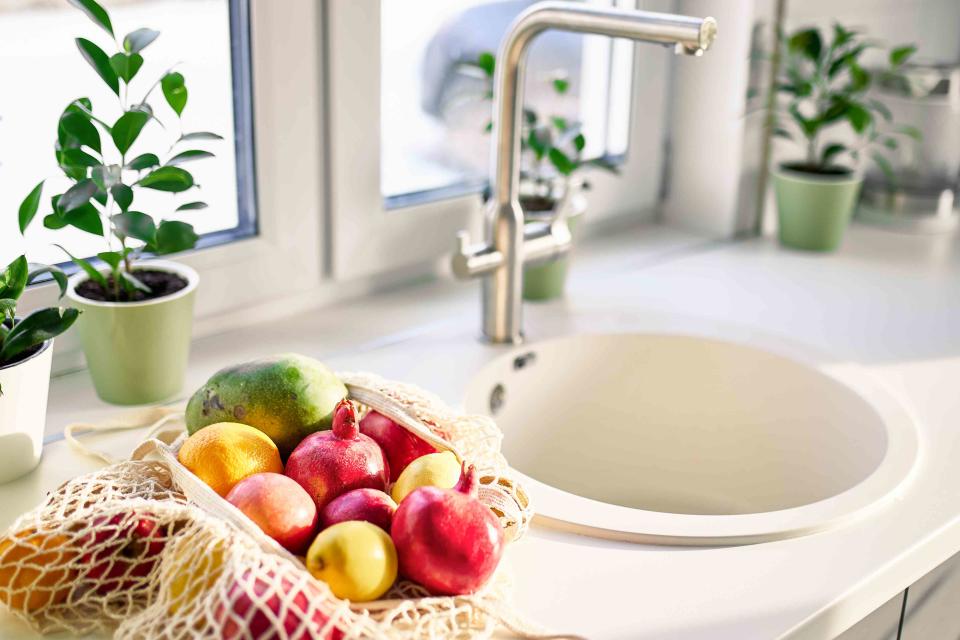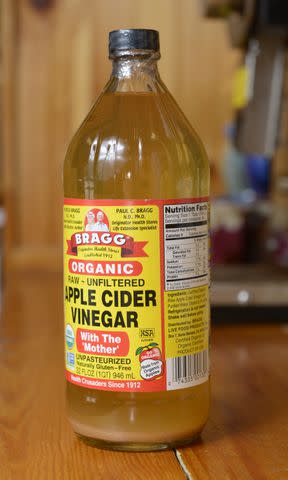The Only Way To Keep Fruit Flies Out of Your Kitchen, According to a Pest Control Expert
Those tiny pests are gross, but are they harmful to your health?

Simply Recipes / Getty Images
It seems to happen overnight. One day, my kitchen is just fine and the next, it’s buzzing with a gross infestation of fruit flies. I always eye the bananas on the counter and figure they are to blame.
“No one likes finding a bunch of fruit flies hanging out on their overripe bananas,” says Matt Rogers, CEO and co-founder of Pestie. “However, just because you find one fruit fly doesn’t necessarily mean you have an infestation in your kitchen.”
If you see lots of little pests swarming around your fruit bowl, garbage can, or sink, there’s a good chance there are rotting or overripe fruits or vegetables nearby. First, Rogers recommends a little bug identification. Determine whether your pests are fruit flies vs. drain flies or fungus gnats. The latter two pests require a different approach than for fruit flies.
Fruit flies have large red eyes and a tan body. If you don’t want to get close enough to note their features, there’s another way to tell.
“Another sign that you have a fruit fly problem is seeing small maggots crawling in or out of overripe fruit or vegetables,” says Rogers. “The mature larvae will leave the breeding site and pupate away from where they were eating.”
How To Get Rid of Fruit Flies
The first step is to toss out any rotten food in your home.
“This might include cleaning out your fruit bowl of any overripe fruit, looking through your pantry for any rotten food, emptying and cleaning your trash can, or cleaning out your drains and garbage disposal,” says Rogers. He suggests sealing produce in airtight containers or keeping it in the refrigerator to prevent the flies from returning.
“The old adage, ‘You catch more flies with honey than vinegar,’ doesn’t apply to fruit flies,” he says. They are attracted to the smell of apple cider vinegar, so you can use that to make a simple and effective homemade trap.
Pour about an inch of apple cider vinegar into an empty jar with a metal lid. Punch four to five holes into the lid and screw it on the top of the jar. Place the jar on the countertop to catch any fruit flies, replacing the vinegar about once a week.

Simply Recipes / Getty Images
How To Keep Fruit Flies Out of the Kitchen
Because they seem to come out of nowhere, a lot of people mistakenly think their fruit is already infested,” says Rogers. “Since fruit flies are so tiny and love the smell of your overripe fruit, they will find their way into your kitchen through even the smallest gap or crack.”
To keep fruit flies away from your fruit, try not to allow them to get in your kitchen in the first place. Be sure that doors and windows are sealed and keep screens on any open windows. Check your home for even the smallest of cracks or gaps and work on sealing those too.
Are Fruit Flies Dangerous?
Fruit flies are mostly just pests, but there is a chance they can contaminate food and surfaces with bacteria and other microbes that can cause disease.
“Since they might be hanging out in some unsavory locations, like your trash can or the bottom of your sink drain, they do have the potential to spread germs wherever they land,” Rogers says. When and how often you see fruit flies depends on the weather and season. They are most active in summer and fall when there’s typically more fruit around.
“That means they are most likely to invade your kitchen during these months,” Rogers says. “There’s a slim chance you’ll find fruit flies inside your kitchen during the cold months of the year unless you already have an infestation.”
Read the original article on Simply Recipes.

